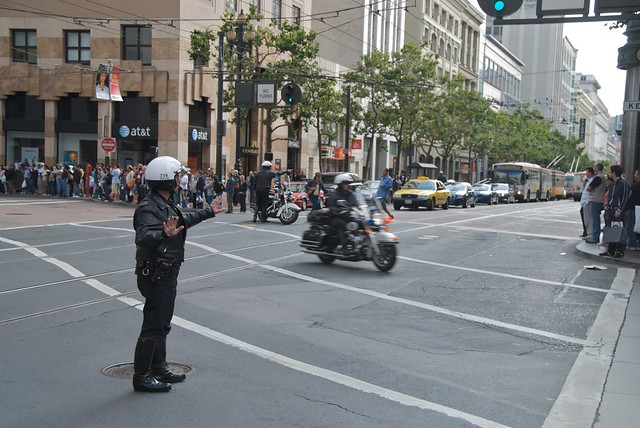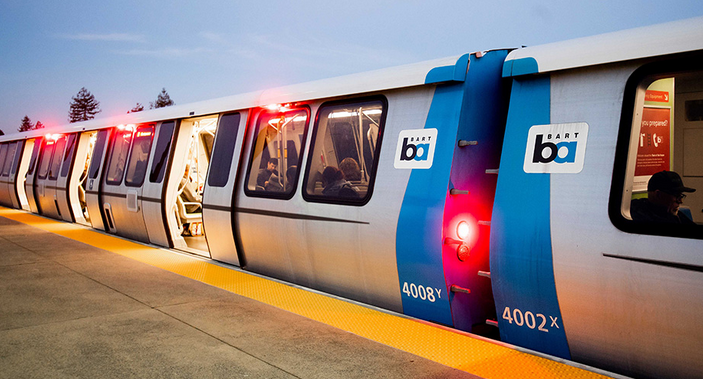
As the SFMTA struggles to provide reliable Muni service, little headway has been made in curbing the amount it spends on staff overtime and work orders issued to other departments.
Supervisors David Campos and David Chiu, who held a hearing on both issues yesterday, say the continued the lack of transparency and accountability is frustrating.
"We've been having this conversation as long as I've been here," Chiu told SFMTA Chief Financial Officer Sonali Bose at yesterday's Government Audit and Oversight Committee meeting, where the supervisors found little explanation as to why the agency has agreed to dole out ballooning sums of money to other city agencies for services in recent years.
"I almost feel like we're wasting our time, at times, by having these hearings," said Chiu. "We are not seeing results, but I hope with this new administration that that will change."
"I think that the single biggest challenge that the MTA is facing," said Campos, "is not a challenge of lack of funding, but is a challenge of mismanagement."
The $62 million to be spent this year on frequently vague, inadequately documented work orders is down compared to the $66 million spent in FY09-10, a rate that has doubled in the past decade. However, where exactly that money is going remains "a bit of a black hole," said Chiu, and critics have scrutinized both the SFMTA and the agencies who are billing it.
"From my perspective, I just don't understand why it's been so difficult to get a better handle of what's happening in the black box of $60 million-plus that are being spent on this," he said.
In April of last year, an audit by the City Controller's Office found weak oversight of the SFMTA's payments to 25 departments including the Police Department, the City Attorney, the Department of Technology, and the Department of Public Works. Many of the agreements, according to the audit, did not include accurate descriptions of the services provided, proper signatures, or even a memorandum of understanding establishing fee rates and performance measurements.
Critics like then-Supervisor Bevan Dufty blasted the SFPD for collecting nearly $19 million from the cash-strapped SFMTA through excessive work orders for services like traffic enforcement, injury crashes, dignitary escorts, and directing traffic at special events.
The SFMTA made some progress in buckling down on work order procedures within the few months after the audit was released, said Tonia Lediju, the Director of Audits for the City Controller's Office. The agency has since established MOUs with all departments which it pays to perform work, though many lack the proper signatures and charter-mandated performance standards.
"We've come a long way, but there's still some way to go," said Bose.
But procedures aside, the audit doesn't address whether or not the SFMTA should be paying for the services in the first place, the supervisors argued.
"I don't feel like this audit helps to clarify that big question," said Chiu. "I feel like we're focused on the trees and not the forest."
When asked about the guidelines SFMTA staff uses to determine which work orders are appropriate, Bose said it generally agrees to any work order which the agency "is getting any value from."
Reducing work orders would not only help balance the SFMTA's budget, but also help fund services like free Muni for low-income youth, argued dozens of speakers from POWER, a social equity advocacy organization. Chiu agreed, pointing out that "over the next six weeks, the amount of money that will be spent by the city on work orders will be the equivalent of what it would cost to get free Muni in San Francisco."
Another major budget-buster for the SFMTA is overtime costs, which are projected this year to nearly double the budgeted amount at $57 million, but the agency is only now developing an official policy aimed at curbing them.
Debra Johnson, the SFMTA's Director of Administration, presented a plan [PPTX] to reduce overtime by addressing issues like vehicle breakdowns, special events, staff shortages, and under-budgeting. One major boon, she said, will be new part-time operators joining the work force as part of the new labor agreement reached in June. That should reduce the need for full-time operators to work overtime at peak hours.
Overall, the agency aims to cut overtime by 10 to 15 percent in the next fiscal year, said Johnson.
The supervisors were optimistic about reform under the new administration of Transportation Director Ed Reiskin, who brings a strong track record from his tenure as director of the Department of Public Works.
Reiskin, who was unable to attend the hearing due to a family emergency, said in an op-ed in the SF Examiner yesterday that he agrees overtime must be curbed but generally defended the validity of work orders.
But the SFMTA's lack of accountability for controlling costs in recent years, the supervisors said, is to blame for its current budget crisis.
"In the private sector, if overtime costs continued to be as high as they are, someone would be held accountable and not have their job at this point," said Chiu.





